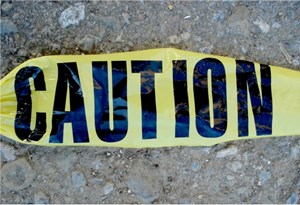NTSB Probe Yields New Safety Recommendations for Gas Utilities
FALLS CHURCH, Va. (AP) — Federal safety officials are recommending new rules for natural gas leak reporting and installations after investigating the cause of an explosion that killed seven people at a Maryland apartment complex in 2016.

The National Transportation Safety Board (NTSB) on Tuesday unanimously adopted the findings of its investigators, who determined that a faulty regulator left unconnected to a vent pipe inside a basement meter room most likely caused the explosion.
Based on its findings, NTSB is recommending that 911 dispatchers automatically call the gas company any time a person calls to report the smell of natural gas, rather than relying on the public or another government agency to make the call.
Among the other NTSB recommendations: installing regulators outside rather than inside so any venting occurs safely into the atmosphere, and an expedited phaseout of the mercury-based regulators of the kind that were in place at the apartment complex.
Washington Gas, the company responsible for maintaining the equipment the NTSB blames for the explosion, has disputed the board's findings.
Washington Gas President and CEO Adrian Chapman issued a statement Tuesday saying the utility remains saddened by the tragedy and committed to safety.
"However, we disagree with their findings as we don't believe the evidence indicates failure of our equipment that night. We also do not believe the NTSB sufficiently investigated the other potential causes of the explosion," Chapman said.
The board's findings do not just point a finger at Washington Gas. The board also found multiple communication gaps and missed opportunities to correct the leak that might have prevented the explosion.
NTSB Chairman Robert Sumwalt said people around the complex smelled natural gas six different times in the weeks and months before the explosion, but nobody ever called the gas company to report a possible leak.
Most glaringly, a complex resident called 911 to report the smell of natural gas on July 25 that year, about two weeks before the explosion. Firefighters responded to the scene and could not detect natural gas. But they were thwarted from conducting a thorough investigation because they couldn't gain access to the meter room from which the leak likely emanated. The locks had recently been changed and firefighters didn't have access to the correct key, even though county code requires that firefighters have such access.
Because no leak was detected, firefighters did not call Washington Gas. Neither did the 911 dispatcher.
Related News
From Archive

- Glenfarne Alaska LNG targets late-2026 construction start for 807-mile pipeline project
- U.S. water reuse boom to fuel $47 billion in infrastructure spending through 2035
- $2.3 billion approved to construct 236-mile Texas-to-Gulf gas pipeline
- Major water pipe break in Puerto Rico hits over 165,000 customers
- Potomac River Tunnel project enters construction phase beneath Washington, D.C.
- Pennsylvania American Water launches interactive map to identify, replace lead water service lines
- Trump's tariffs drive $33 million cost increase for Cincinnati sewer project
- Utah city launches historic $70 million tunnel project using box jacking under active rail line
- Tulsa residents warned after sewer lines damaged by boring work
- Fatal trench collapse halts sewer construction in Massachusetts; two workers hospitalized



Comments